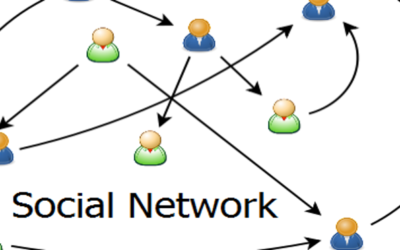Can you live with dementia?
Can you manage its effects so that quality of life remains?
In the literature on dementia a new emphasis is beginning to emerge. The emphasis is on living with and managing the effects of dementia.
As the dementia drug trials fail again, we are left with very little hope of a cure in the near future. So we can’t live with our eyes on the horizon, expecting that a miracle cure is going to come anytime soon. This means we have to deal with the here and now. We have to provide realistic answers for individuals today.
So the focus has shifted. There is now more discussion about supporting the well-being of individuals with dementia. The focus is on improving quality of life. I believe this is a very important shift to make. Gone should be the days of a dementia diagnosis and ‘game over’ approach to care. There is so much we can do to support and affirm the well-being of individuals living with dementia.
I Am a Whole Person
It is important that the care approach to dementia should meet not only the physical needs but also the psychological needs of the person with dementia. I had that insight when I read an email from Richard Taylor, the author of the book Alzheimer’s from the Inside Out. He said in part:
“I was a whole person the moment I was born. I was a whole person, yes, even in my teen years. I am a whole person now. Even near death, even in death I am a full and whole person. Although thanks to Doctor Alzheimer and his sticky footed troops tromping around between my ears I now evolve, change, morph in ways neither of us can predict or understand – I am still me!
Never will I be three-fourths of a person, half of a person, nor 1/73 of a person. There has not, nor will there ever be a moment in my life when I am not a complete Human Being. Please get this; it’s important to me, to those who love me, to those who are paid to care for me. It is important to our society. I am always me…
Hands up in the audience if you are trying to help me be all I can be for as long as I can be? Who wants to help enable me to be as much as I want, as much as I can, as much as I should be right now, and every tomorrow until the day I die?”
Isn’t this something that we all aspire to – to be all we can be for as long as possible? Whether or not we have a cognitive impairment, we all have similar human needs.
Psychological Needs
Taking care of an individual’s psychological needs is important. A critical need for everyone is the need for affirmation and support of your sense of self.
A diagnosis of dementia severely shakes self-confidence. It becomes easier to withdraw from interactions with other. This is an understandable self-protective measure.
If you are not sure of your abilities on any given day, a lot of fear and anxiety can be generated. This fear can paralyze your interactions. That is why it is so important that the care given focuses on affirming the individual in who they are as a person. Speaking to them slowly, with respect, is important.
At Fit Minds, we believe the way we dress is important. Our outward appearance reflects the importance we give to others. One of our coaches was meeting with a client for the first time. The women commented that our coach was dressed so nicely.
The coach said: “Well, I had an important meeting today.”
The women asked her: “What important meeting?”
The coach responded: “I was meeting with you.”
The women was so touched and said: “I appreciate you took the time to dress up for me.”
Taking the time to dress as if the other person is important is a small detail. But it shows that the other is important. It meets a psychological need.
Value the Individual
It is also important that dementia care continues to support the social value of the individual.
There is still an attitude that individuals with dementia have no social value. It is common to think that individuals with dementia don’t contribute to society. Or we think that they are somehow worth less once they receive this diagnosis. But one need only look at the lives of Rick Phelps (founder of Memory People) or Terry Pratchett (author of the Discworld series) to see this is not so. While the struggles are there – the ability and willingness to make a difference remains.
While all of us need affirmation and appreciation of our social value, it is when we are at our most vulnerable that this support is most valuable.
Living with dementia takes courage. But so does just living…and we can learn so much from those who live with dementia and those who help them manage it.





0 Comments